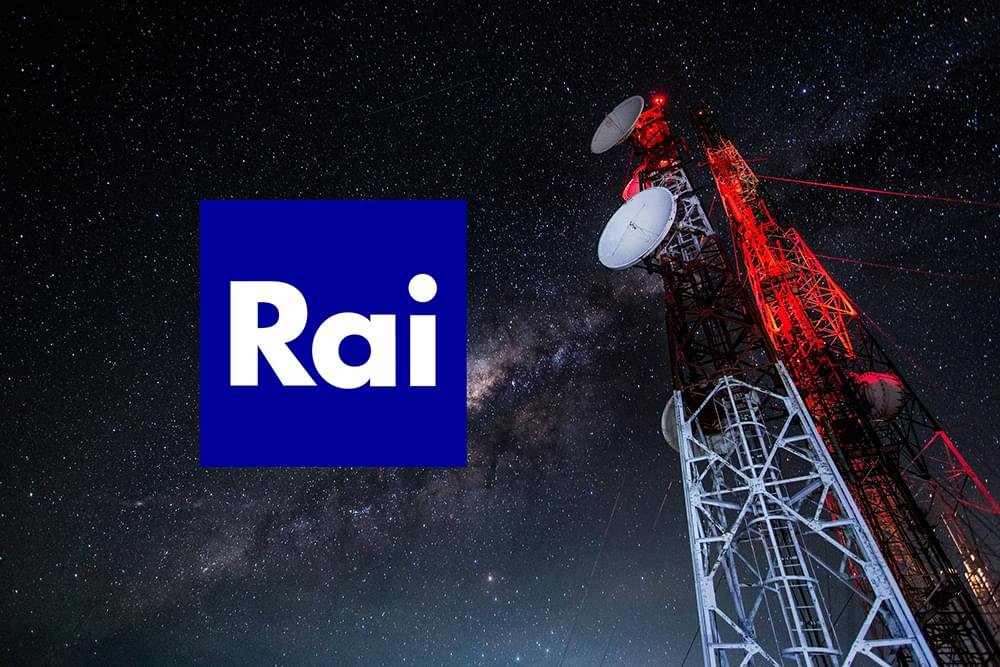
Radiotelevisione Italiana, commonly known as RAI, is Italy's national public service broadcaster. Founded in 1924, RAI has played a pivotal role in shaping Italy's media landscape and has grown to become one of Europe's largest public broadcasting organizations. This article will provide a detailed overview of RAI, exploring its history, structure, programming, and its significant cultural and political influence in Italy.
The history of RAI can be traced back to the early 1920s when radio broadcasting began to gain popularity in Italy. In 1924, the Italian government established the Ente Italiano per le Audizioni Radiofoniche (Italian Broadcasting Company), which marked the birth of RAI. Initially, RAI primarily focused on radio broadcasting, but it expanded into television in the 1950s when television technology gained prominence.
RAI played a significant role during World War II, acting as both a propaganda tool for Mussolini's fascist regime and, later, as a source of information and entertainment for the Italian population during the war's tumultuous years. After the war, RAI underwent a period of restructuring and democratization, leading to its transformation into a public service broadcaster. It was formally named Radiotelevisione Italiana in 1954.
RAI is structured as a public service broadcaster with a distinct administrative and governance framework. The organization is governed by a board of directors, with its president appointed by the President of the Italian Republic. This governance structure aims to ensure RAI's independence from political interference and maintain its commitment to serving the public interest.
RAI operates several national and regional television and radio channels. The organization's primary channels include RAI 1, RAI 2, RAI 3, and RAI News 24, each catering to different demographics and interests. Additionally, RAI operates numerous regional channels that provide localized content to various regions of Italy.
RAI offers a diverse range of programming that spans various genres, including news, sports, entertainment, culture, and education. RAI's flagship channel, RAI 1, focuses on general entertainment and news, often featuring popular Italian dramas, game shows, and news programs. RAI 2 and RAI 3 cater to more specialized audiences, with RAI 2 emphasizing youth-oriented content and RAI 3 focusing on cultural and educational programming.
RAI also has a strong presence in the realm of sports broadcasting. The network regularly airs live coverage of major sporting events, including football (soccer), cycling, and Formula 1 racing. This has made RAI a popular destination for sports enthusiasts in Italy.
In addition to its television programming, RAI operates a comprehensive network of radio stations that offer news, music, talk shows, and more. These radio stations provide a valuable source of information and entertainment to Italians across the country.
RAI's significance in Italy extends beyond its role as a broadcaster; it has played a crucial role in shaping the nation's culture and politics. The network has been instrumental in promoting Italian language and culture, as well as providing a platform for emerging artists, musicians, and actors.
RAI has also had a significant impact on Italian politics. The organization's editorial independence has made it a trusted source of news and information for the Italian public. Over the years, RAI has faced challenges related to political interference and bias, but its commitment to maintaining journalistic integrity remains a core principle.
Radiotelevisione Italiana (RAI) stands as a prominent institution in Italy's media landscape, with a rich history, diverse programming, and a lasting cultural and political influence. As Italy's national public service broadcaster, RAI continues to play a pivotal role in informing, entertaining, and educating the Italian population while upholding its commitment to the public interest and editorial independence.

More Details